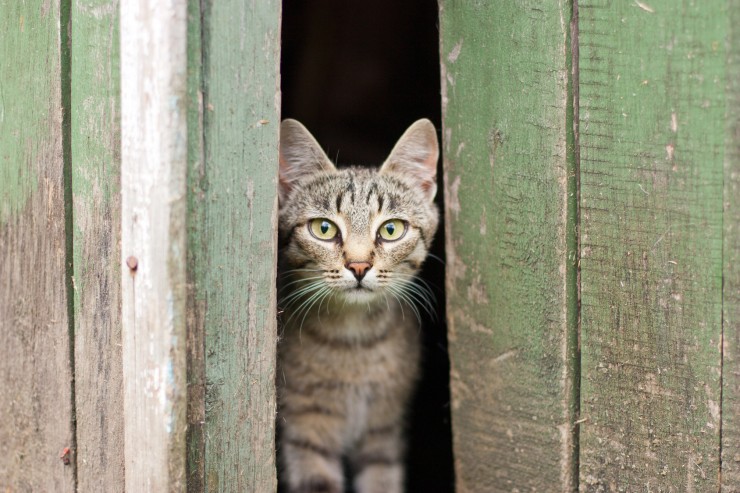
If you have a cat that has had a bladder infection in the past, you may not know that your cat is more likely to suffer from repeat infections in future because of that. There are five main reasons that bladder infections in cats are reasonably common. Knowing why your cat has the infection and being able to follow a routine in order to decrease the incidence of it reoccurring is beneficial to both you and your cat.
Simply put, bladder infections in cats result from anything that may obstruct or decrease the natural flow of urine through the cat's system. This can be due to a number of factors which will be outlined below. It is important to have your cat seen by your veterinarian, as it is an uncomfortable and often painful infection that needs to be treated. There are some very good preventative remedies available also that I will discuss later.
One of the most common reasons why a cat will be more prone to bladder infections could be as simple as your cat's sex. Being a female cat means that its urethra is often shorter and wider than a male's urethra, and therefore females suffer from bladder infections more often than their male counterparts. Generally speaking, the bladder has a pocket-like design that is made up of many tiny, elastic-type membranes. It can stretch when there is urine present and contract back when it is empty.
When the urethra is scraped or damaged due to your cat being catheterized, perhaps due to surgery, it can increase the chances of bladder infections in cats. The urethra is made up of a very delicate lining and scraping it accidentally when inserting or removing a catheter can result in damage and an infection ensuing. Once your cat has had this initial infection, further infections are more likely to occur.
Just as in humans, cats can suffer from kidney stones. These can block the flow of urine and cause a pooling in the bladder. Any disruption to the flow will cause an infection. If your cat has been straining when urinating or has difficulty when doing so, then you need to seek veterinary advice. Often a urine analysis test will be undertaken and the infection will be determined. Your veterinarian will most often prescribe a course of antibiotics and this can be taken for a period of around two weeks. Many times, however, the diagnosis of bladder infections in cats leads to other problems being detected within your cat's body. Many times tumors or growths within the bladder and urethra are detected as the cause of the bladder infection.
Looking at all of the causes and some of the treatments that can be involved with bladder infections in cats, the best advice is always that prevention is the best cure. Sometimes, this can be simply a matter of changing the cat's diet from a mostly dry menu to a wetter option, including perhaps a high-quality canned food. There are also many very good herbal remedies that can easily be incorporated into your cat's diet.
Look for natural methods to reduce vet bills and prevent bladder infections in cats. Start protecting your best 4-legged friend today at http://Cat-Bladder-Problems.com .
 How To Create Wonderful Hideaways For Your Cat This Summer
How To Create Wonderful Hideaways For Your Cat This Summer
 What Happens When Your Puppy Begins To Get Their Adult Teeth?
What Happens When Your Puppy Begins To Get Their Adult Teeth?
 Breeding From Your Dog - Caring For The Litter During Their First Two Weeks Of Life
Breeding From Your Dog - Caring For The Litter During Their First Two Weeks Of Life
 Making Sure Horses Hooves Are In Good Condition This Season
Making Sure Horses Hooves Are In Good Condition This Season
 Some Common Canine Care And Behaviour Myths
Some Common Canine Care And Behaviour Myths
 What Is A Gypsy Vanner ?
What Is A Gypsy Vanner ?
 Feeding Rainbowfish Successfully
Feeding Rainbowfi
Feeding Rainbowfish Successfully
Feeding Rainbowfi
 Canine Parainfluenza - Parainfluenza In Dogs
Canine Parainflue
Canine Parainfluenza - Parainfluenza In Dogs
Canine Parainflue
 Do Staffordshire Bull Terriers Make Good Pets For Families?
Do Staffordshire
Do Staffordshire Bull Terriers Make Good Pets For Families?
Do Staffordshire
 How To Keep A Tibetan Terriers Coat Looking Good
How To Keep A Tib
How To Keep A Tibetan Terriers Coat Looking Good
How To Keep A Tib
 Successful Dog Training Starts with Good Pet Health
Successful Dog Training Starts with Good Pet Health
Successful Dog Training Starts with Good Pet Health
Successful Dog Training Starts with Good Pet Health
Copyright © 2005-2016 Pet Information All Rights Reserved
Contact us: www162date@outlook.com